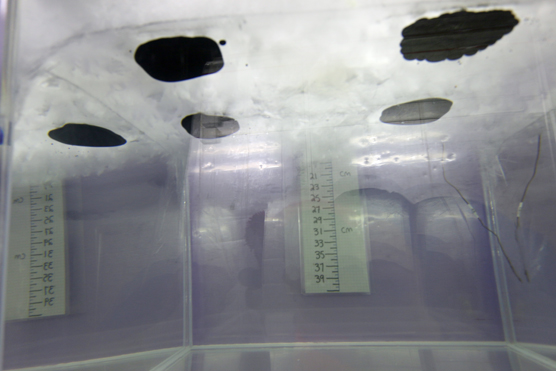
Oil under ice in a tank. © Nga Phuong Dang
Objective: Assessment of natural degradation rates of different oil fractions in seawater and sediments, and taking into account environmental parameters, dispersants application and electro-kinetic treatment. The aim is to determine key bacterial species and metabolic pathways responsible for the degradation of different oil fractions in different compartments (aerobic and anaerobic water and sediments) of the Baltic Sea and the Northern Atlantic. Response of Arctic shoreline and seawater microbial communities to oil pollution and the application of different oil remediation strategies including in situ burning of oil in ice and near shore burning will be assessed.
Planned steps:
- Oil biodegradation in seawater and impact of dispersants on oil biodegradation characteristics
- Oil biodegradation is sea water-ice interface
- Remediation of oil contaminated sediments using electrokinetic treatment
- Effect-based assessment of biodegradation and remediation success
- Omics data integration and meta-analysis
Work package leader:
Professor Jaak Truu
Institute of Ecology and Earth Sciences
University of Tartu
jaak.truu@ut.ee